Photograph; Tina Fineberg for The New York Times | Donald Fednyak in Astoria, Queens, holds a palm card given him by George Banning, canvassing for charter school advocates.| Copyright New York Times
Over the last many years, Charter School growth soared exponentially. Parents preached. ‘America’s public schools are failing.’ We need a better option to teach our children, one that prepares them academically, and of course, professionally. Charter School advertisements reach the populace emotionally. Press about Charter Schools increased enrollment. Public Schools Tried Marketing. Public schools could argue legitimately that they are genuinely tuition-free. Still, after all the navigation and attempts at negotiation Charter Schools win. Hedge Funds stepped in.
Financiers found their “feeders” who became their cheerleaders. For instance, New York Governor Andrew Cuomo would begin any conversation with words of praise and elation. ‘Enroll your child in a Charter School and everyone will see successes!’
Thus, we have the history. Charters, posited as public school alternatives. These barely regulated institutions run with taxpayer dollars. Currently charter schools are legal in 42 states. According to a recent report Measuring Up to the Model charter school enrollment has grown 225 percent over the last 10 years. The number of schools has more than doubled. In the nation’s largest cities we see exceptional numbers. Charter school students, in cities such as Philadelphia and New York represent 10 percent or more of their students enrolled in highly selective schools. And New York City ranked among the top 10 cities for charter school growth for a second year in a row.
How did it happen? How could it be that the campaign to promote Charter Schools was so wildly successful? When and how did it all begin? As the cliché goes “Follow the money.” This tale is not all that funny, if a pay-to-play history ever is.
Charter Schools’ New Cheerleaders: Financiers
When Attorney General Andrew M. Cuomo wanted to meet certain members of the hedge fund crowd, seeking donors for his all-but-certain run for governor, what he heard was this: Talk to Joe.
That would be Joe Williams, executive director of a political action committee that advances what has become a favorite cause of many of the wealthy founders of New York hedge funds: charter schools.
Wall Street has always put its money where its interests and beliefs lie. But it is far less common that so many financial heavyweights would adopt a social cause like charter schools and advance it with a laserlike focus in the political realm.
Hedge fund executives are thus emerging as perhaps the first significant political counterweight to the powerful teachers unions, which strongly oppose expanding charter schools in their current form.
After hearing from Mr. Cuomo, Mr. Williams arranged an 8 a.m. meeting last month at the Regency Hotel, that favorite spot for power breakfasts, between Mr. Cuomo and supporters of his committee, Democrats for Education Reform, who include the founders of funds like Anchorage Capital Partners, with $8 billion under management; Greenlight Capital, with $6.8 billion; and Pershing Square Capital Management, with $5.5 billion.
Although the April 9 breakfast with Mr. Cuomo was not a formal fund-raiser, the hedge fund managers have been wielding their money to influence educational policy in Albany, particularly among Democrats, who control both the Senate and the Assembly but have historically been aligned with the teachers unions.
They have been contributing generously to lawmakers in hopes of creating a friendlier climate for charter schools. More immediately, they have raised a multimillion-dollar war chest to lobby this month for a bill to raise the maximum number of charter schools statewide to 460 from 200.
The money has paid for television and radio advertisements, phone banks and some 40 neighborhood canvassers in New York City and Buffalo — all urging voters to put pressure on their lawmakers.
Teachers unions have historically opposed charter schools — which receive taxpayer funds but are privately run, and whose teachers usually are not unionized — contending that they drain money from regular public schools.
The United Federation of Teachers, the New York City union, has taken notice. It is sending its own message over the airwaves: that fat-cat charter supporters are “spending over a million on false attacks against teachers and public schools.”
Before now, said Boykin Curry, a partner in Eagle Capital Management, who attended the breakfast with Mr. Cuomo, “A lot of hedge fund and finance people in New York had decided state politics was too dirty and focused on their philanthropy.” Mr. Curry, a founder of two Girls Prep charter schools in New York City, added, “I think there’s an awakening now that we can be a force in Albany, but we’ve got to play a tougher game than before.”
Mr. Williams, a former education reporter for The Daily News, has intensified his activities, hiring Bradley Tusk, who managed Mayor Michael R. Bloomberg’s re-election campaign last year, and top Albany lobbyists including Patricia Lynch, a former aide to Sheldon Silver, the Assembly speaker, who will be crucial to the success of any charter bill in the Legislature.
Late last month, Education Reform Now, a related advocacy group also run by Mr. Williams, received a promise of $1 million from the Robin Hood Foundation, a Wall Street charity, in recognition that “this is an all-hands-on-deck moment,” said David Saltzman, its executive director.
Last week, a bill to raise the cap on charter schools passed in the State Senate by a ratio of three to one, with a number of Democrats in support. It is now in the hands of the Assembly, where charter proponents have been in the minority.
Critics of charter schools suggest that their sometimes stellar academic results are deceptive because they enroll relatively few students who do not speak English or require special education, or both.
The cap-lifting bill passed by the State Senate got through in part because it requires charter schools to take on more of those students.
But with their lobbyists, phone banks and door-to-door canvassers, the pro-charter forces are turning up the heat by invoking the June 1 deadline by which the state must apply for $700 million in education grants from the federal government in the competition known as Race to the Top, which promotes charter school growth as one of its many goals.
Mr. Silver, in a statement on Friday, said his Democratic majority conference would review issues related to the Race to the Top “in the near future.”
Meanwhile, many hedge fund managers are expected to attend a $1,000-a-ticket fund-raiser on Wednesday at the Harvard Club for Assemblyman Sam Hoyt of Buffalo. Mr. Hoyt, a Democrat and a charter school supporter, acknowledged that the money could help — but only so much.
“Compared to the resources that the teachers union has, it’s not enough,” he said. “Some big-shot millionaire is not going to go ring doorbells and get hundreds of people in a phone bank.”
The issue of charter schools in some ways crosses party lines, although there is no Republican equivalent of Mr. Williams’s Democratic political action committee. There does not have to be one: Many Republican officials readily embrace charter schools, whose ideological roots are in a free-market model of education.
Much of the policy around reforms that charter schools embody — rewarding teachers based on student gains; having longer academic years; emphasizing discipline — has been promoted by conservative research groups like the Hoover Institution and the Thomas B. Fordham Institute.
Former President George W. Bush supported charter schools, but so does President Obama — which has given political cover to many Democratic supporters to be more outspoken.
New York State United Teachers, the statewide union, produced a report last month listing what it called abuses by charter school officials, including instances in which for-profit management companies signed questionable loans or property rental deals with the schools they were hired to run.
Michael Mulgrew, the president of the United Federation of Teachers, has melded these companies — which run only about a dozen of the 140 charters in the state — into all pro-charter forces in his talking points, accusing hedge fund managers of putting “profits above education.”
“I think they should donate their money, and they seem to have a lot of it, directly to the education budget,” Mr. Mulgrew said. “They seem to be willing to spend anything, which always leads me to suspect motive.”
Charter supporters say the unions’ own motives are clear: “To protect their own self-interest, often at the expense of children,” said Whitney Tilson, a hedge fund manager who is on the board of KIPP New York, which runs six charter schools.
The financial titans, who tend to send their children to private schools, would not seem to be a natural champion of charter schools, which are principally aimed at poor, minority students.
But the money managers are drawn to the businesslike way in which many charter schools are run; their focus on results, primarily measured by test scores; and, not least, their union-free work environments, which give administrators flexibility to require longer days and a longer academic year.
It also does not hurt that the city’s No. 1 billionaire, Mr. Bloomberg, is a strong charter school supporter. He is the host of the fund-raiser for Mr. Hoyt, and at times, Democrats for Education Reform seems an extension of the mayor’s own platform.
Besides more charter schools, the group and the mayor have called for ending the use of seniority as a basis for layoffs and for granting principals more power to fire teachers they consider ineffective.
Mr. Cuomo also has expressed support for charter schools. A spokesman for Mr. Cuomo declined to answer questions about the breakfast at the Regency, but Mr. Williams said it had gone well.
“We said we were looking for a leader on our particular issue,” he said, and as a result, when Mr. Cuomo is next required to disclose his contributors, “You will see a bunch of our people on the filing.”
References and Resources…
- Mayor-elect Bill de Blasio names Carmen Fariña NYC schools chancellor. By Associated Press in New York. The Guardian. December 30, 2013
- Measuring Up to the Model. National Alliance for Public Charter Schools report. January 2014
- Charter School Legislation, Regulations, and Guidance. United States Department of education.
- New York Charter Schools Enrollment FAQ. New York Charter Schools.
- How Charter Schools Are Using Sophisticated Marketing To Lure Students State Impact Ohio. May 28, 2014
- Pressed by Charters, Public Schools Try Marketing:. By Jennifer Medina. The New York Times. March 4, 2010
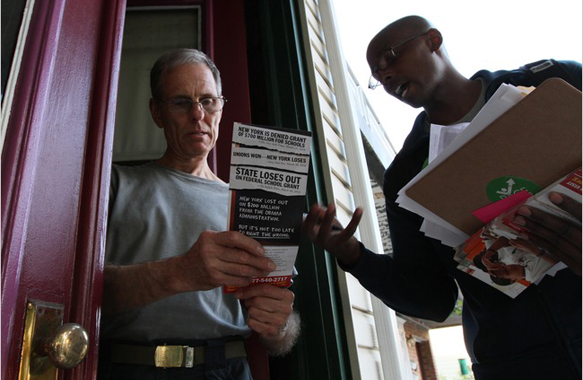




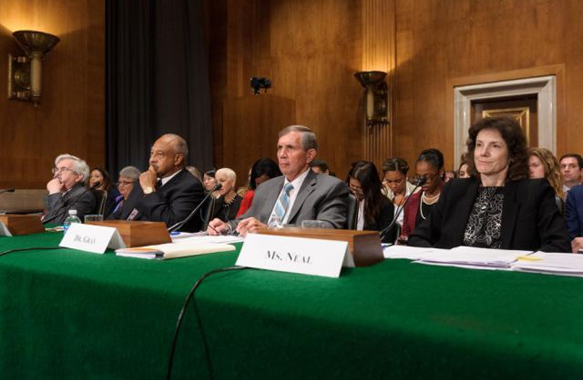

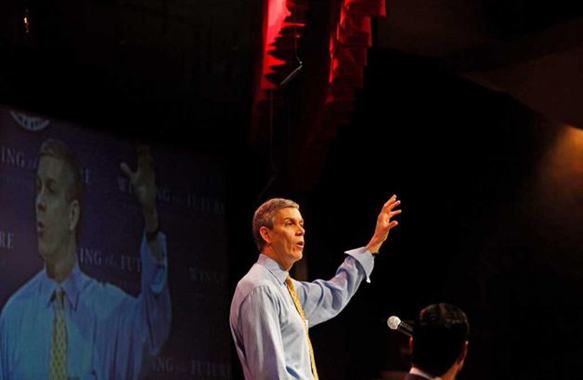
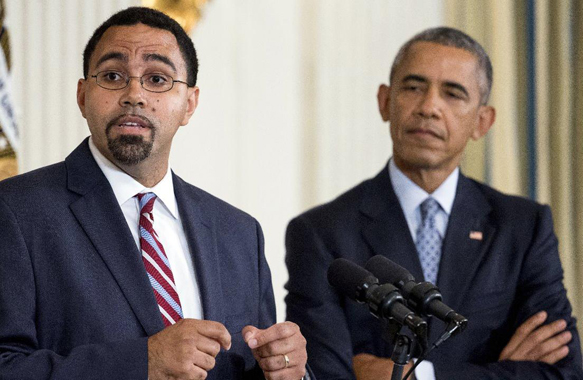
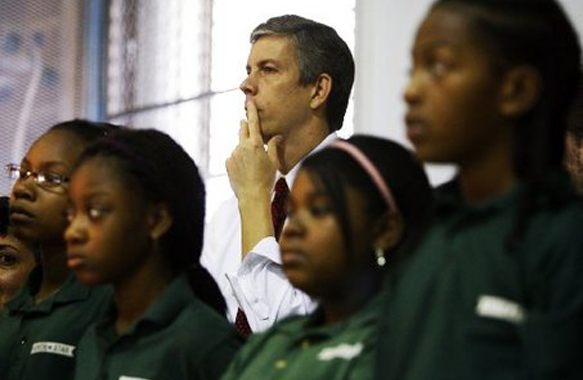


Leave A Comment